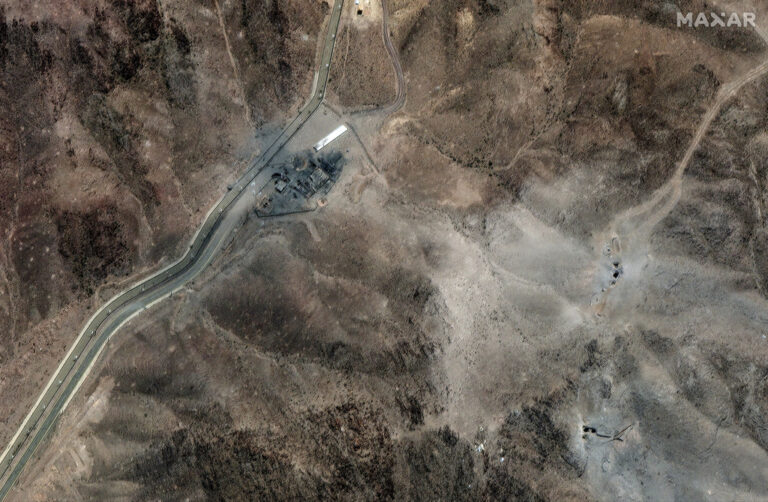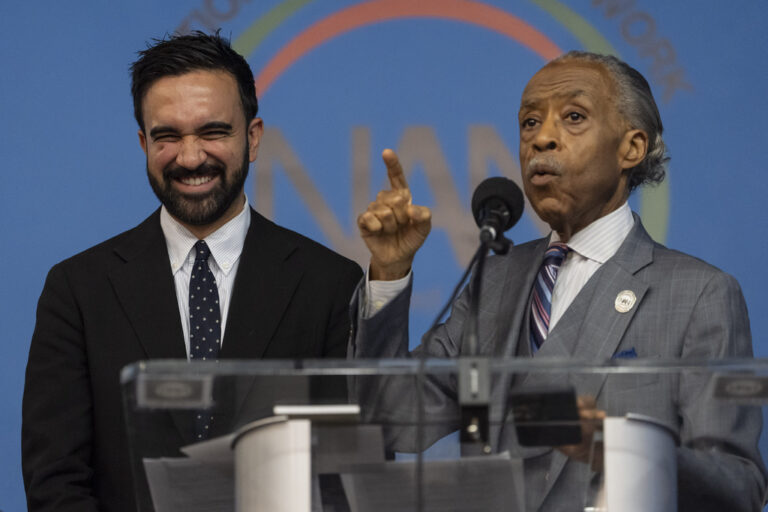 Prime Minister Benjamin Netanyahu said on Thursday he was merging his Likud party with that of his ultra nationalist coalition ally Foreign Minister Avigdor Lieberman in a hard-right tack ahead of Israel’s Jan. 22 election.
Prime Minister Benjamin Netanyahu said on Thursday he was merging his Likud party with that of his ultra nationalist coalition ally Foreign Minister Avigdor Lieberman in a hard-right tack ahead of Israel’s Jan. 22 election.
Though the conservative Likud already led opinion polls, its joint list with Lieberman’s Israel Beiteinu (“Israel is Our Home”) could win over wavering voters for a ballot sweep that Netanyahu saw empowering him to push through major policies.
Resuming stalled U.S.- and European-sponsored peace talks with Palestinian President Mahmoud Abbas is unlikely to be a high priority, however, given the disdain for his authority voiced by Lieberman, a settler in the occupied West Bank.
“In Israel, the prime minister needs a big, cohesive force behind him,” Netanyahu said at a news conference, citing a need to tackle security concerns like Iran’s nuclear programme as well as economic and social problems in Israel.
Running with Lieberman, Netanyahu predicted, would yield “a clear mandate that will allow me to focus on the main issues, rather than trifles”.
Battered by partisan sniping during his first term as premier in the late 1990s, when Lieberman served as his chief of staff, Netanyahu has since sought broad-based and ideologically binding political alliances.
Lieberman has also called for an overhaul to the fractious political system, where a low threshold of minimum votes allows for a multitude of small special-interest parties in parliament.
“Real reform of governance begins, effectively, today,” the Moldovan-born foreign minister said alongside Netanyahu.
PRIORITIES
A TV poll aired on Monday saw the Likud and Yisrael Beiteinu taking, respectively, 27 and 12 of parliament’s 120 seats, and an eventual new Netanyahu-led coalition commanding 65 seats.
The Likud denied an Israeli media report that Netanyahu and Lieberman planned to rotate the premiership between them in the next government, as the Likud’s Yitzhak Shamir and the dovish Shimon Peres did during their coalition in the 1980s.
Opposition parties decried the alliance, with Zehava Gal-On of the liberal Meretz saying it invited international isolation.
“The prime minister is essentially signalling that he has chosen the extremist, pro-settlement right, that he has chosen to walk in place, not to make progress in the diplomatic process (with the Palestinians),” she told Israel’s Army Radio.
That was echoed by veteran Palestinian negotiator Hanan Ashrawi, who accused Netanyahu of scrapping any prospect for peace in return for a firmer hold on Israel’s national helm.
“Such a dramatic shift to the right will be very costly for both sides, and it will again destroy chances of peace and will further separate issues of justice and Palestinian rights from Israeli politics,” Ashrawi told Reuters.
Netanyahu says he is committed to achieving an accord with the Palestinians, though he disputes their claim on the West Bank and East Jerusalem and has made clear that curbing Iran, as well as Abbas’s armed rival Islamists, is Israel’s core worry.
Defence Minister Ehud Barak last year quit his centre-left Labour party, dumping it from the coalition, to form a more conservative party that dovetailed with Netanyahu’s policies.
Netanyahu further widened the coalition this year by joining forces with the centrist Kadima party, though that partnership soon broke up over the government’s failure to push through a reform of military conscription laws granting exemptions en masse to ultra-Orthodox Jewish seminary students.
Netanyahu might try to address the draft issue again with the help of the secularist Lieberman, given what appears to have been their decision not to inform Shas, the powerful religious party in the coalition, about their merger in advance.
“I was absolutely surprised by this,” the Shas leader Interior Minister Eli Yishai said, anticipating the move could prompt left-leaning and Orthodox parties to form their own blocs.
(Reuters)











4 Responses
So much for the idea that Likud is a party that tries to be friendly to Orthodox Jews.
So will they make Arabs finally EARN their citizenship, like Lieberman originally wanted?
Resuming stalled U.S.- and European-sponsored peace talks with Palestinian President Mahmoud Abbas is unlikely to be a high priority, however, given the disdain for his authority voiced by Lieberman, a settler in the occupied West Bank.
YWN: I can’t imagine you read this article; since when is “settler in the occupied etc.” acceptable language? Where do you get your news? This usage on your site is as good as giving the concept your imprimatur, no?
auntwho,
It does say Reuters at the end of the article…